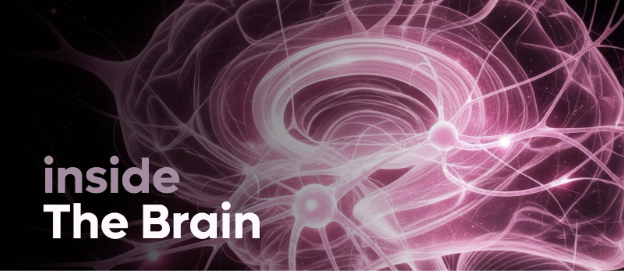
AI writing is making authenticity scale
September 28, 2025
Ever since GenAI is openly offering it's service to the Comms world, there is a debate about 'authenticity' amongst professionals. Here is why that conversation in corporate communications, misses the point entirely, i you ask me.
After 25 years of writing for executives, I've never heard objections about external communications help. Some CEOs like to be written for, need it even, others don't. There's often little input provided, corporate communications pro's mix being half analyst, half mind reader.
With AI coming into the mix, I keep hear many people (comms pro's included) say "This is a danger to authenticity".
That is odd to me: nobody ever cared about others writing for 'influencers' until AI got added.
Is it because power is shifting, or just because people are getting used to what is changing? Or because the ones who felt control before are catching up their AI game?
This intrigues me.
The authenticity we've always had
Let me tell you what authentic executive communications looked like for the past three decades:
A CEO discusses strategic input with their head of communications. The communications team drafts key messages. An agency writes the speech. A copywriter crafts the LinkedIn post. The executive reviews, edits, and approves.
Everyone involved uses messaging frameworks, brand guidelines, and approved talking points. Multiple people touch every piece of content before it reaches the audience.
And you know what? Nobody questioned authenticity. Because authenticity in corporate communications was never about who held the pen, it was about whether the content reflected the executive's true position, strategic direction, and voice.
What AI actually changes
Here's what's different with AI:
- Instead of a copywriter interpreting brand guidelines, AI applies them systematically
- Instead of agencies guessing at tone, we feed AI precise voice instructions
- Instead of hoping everyone remembers the messaging framework, AI accesses it instantly
- Instead of each writer adding their own interpretation, AI maintains consistency
The process becomes more transparent, more precise. Not less authentic.
The real breakthrough: systematic authenticity
I've spent years building messaging and sometimes that ended up in forgotten folders. I've watched strategy get diluted through multiple handoffs. I've seen brands sound different every time they speak because humans couldn't remember—or access—the guidance they needed.
AI changes this.
Now we build knowledge bases that capture not just what to say, but how to say it. We create systematic instructions that ensure every communication reflects approved positioning, verified facts, and consistent voice. We make organizational knowledge accessible instead of locked in someone's head.
This isn't less authentic, it sets authenticity up to scale.
The question that matters
The question was never "Who wrote this?" The question has always been "Would the CEO sign their name to this?"
When I write for an executive, they care about three things:
- Does this get our messaging across with the right audience in an impactful way?
- Does this represent our/my actual position on this topic?
- Does this sound like me—am I comfortable putting my name on this?
AI doesn't change these criteria. If anything, it helps us meet them more consistently.
Why this matters now
The companies gaining advantage from AI-powered communications aren't cutting corners on authenticity, but they're achieving it more reliably. They're ensuring every piece of content reflects their actual strategy, messaging, and tone of voice.
Their executives spend time reviewing messaging and fixing tone. The result is that communications actually sounds like the organization they represent, on the first go, and every time.
Moving beyond the wrong question
"Is it authentic?" assumes AI creates some new barrier to genuine communication. But AI is just another tool in a process that has always involved multiple people, strategic input, and systematic guidance.
The better question is: "Can we get more systematic about reflecting who we actually are?"
Because that's what authenticity in corporate communications really means. And AI helps us get there faster, more consistently, and with better results than we've ever did before.

.png)


